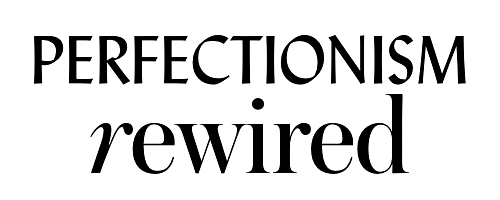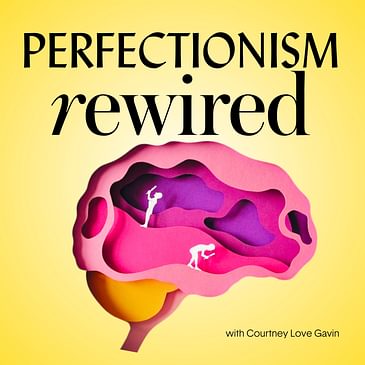Feel like Perfectionism is controlling you? That you’re at the mercy of your perfectionist tendencies? Or that life would be easier if you weren’t such a perfectionist? Perfectionism is not a choice. But you can choose how you want to navigate through it, and that choice is powerful. Discover how the greats Dolly Parton, Serena Williams, Kobe Bryant, Sara Blakely, Marie Kondo have leveraged their perfectionism to shine. Through scientific research and personal experiences, you'll discover step-by-step how it's possible to rewire your perfectionistic habits from the inside out, just like CLG did.
Rewire the right way (not the hype way) inside Perfectionism Optimized, the only 1-1 private coaching backed by SCIENCE + exclusively designed for driven, ambitious + type-A high achievers with perfectionistic tendencies who want to feel as incredible on the inside as their life looks on the outside. Melt your stress away starting today over at: https://courtneylovegavin.com/optimized
TIMESTAMPS:
00:00-Understanding Learned Helplessness Embedded In Perfectionism Recovery
01:28-Challenging Lies About Perfectionists with Science
02:16-Celebrating Famous Perfectionists Behind World-Changing Innovation
03:55-WTF Are Enduring Identity Markers + Why Do They Matter?
05:12-Unlearning Learned Helplessness with Dr. Martin Seligman (Godfather of Positive Psychology)
06:11-The Problem With Blaming Perfectionism
07:03-Flipping Helplessness to Empowerment
08:46-Rediscovering Being In Charge and Response-ability
10:12-Helplessness + Feeling Out of Control Re: Childhood Conditioning
11:58-Reframing Perfectionism as an Empowerment Journey
13:20-How To Quit Fighting Against Your Perfectionism + Work WITH It
15:05-What incest + perfectionism recovery have in common
16:40-Getting Your Perfectionism Right
17:25-Quality Questions To Snuff Out Helplessness
Truth + Accuracy In Episode 219 Is Brought To You By:
Abramson, L. Y., Seligman, M. E., & Teasdale, J. D. (1978). Learned helplessness in humans: Critique and reformulation. Journal of Abnormal Psychology, 87(1), 49–74. https://doi.org/10.1037/0021-843X.87.1.49
Quchani, M. (2023). The mediating role of coping styles in the association between perfectionism and learned helplessness in students’ population. Annales Médico-Psychologiques, 181(7), 619–627. https://doi.org/10.1016/j.amp.2022.07.010
Woodfin, V., Binder, P. E., & Molde, H. (2020). The Psychometric Properties of the Frost Multidimensional Perfectionism Scale–Brief. Frontiers in Psychology, 11, 1860.
Perfectionism is very powerful. But only if you know how to leverage it. For more on optimizing your perfectionism go to courtneylovegavin.com
Get the BEST insights from today's episode + time-stamped show notes by subscribing to The Perfectionist Guide newsletter. To access + subscribe go to: https://courtneylovegavin.com/newsletter



